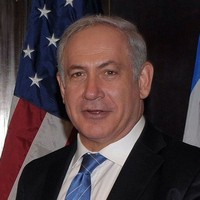Announcements made at 2:30 a.m. usually come as a surprise, and the one made Tuesday night by Israeli Prime Minister Benjamin Netanyahu was no exception. Israelis rubbed their eyes, trying to make sure they had heard correctly: Netanyahu upended the country's political chessboard by making a deal with the largest opposition party. Early elections, which had been expected in September, were canceled.
Suddenly, Israel no longer has a rightist government. Most importantly, the deal with Shaul Mofaz, the newly elected head of the centrist Kadima party, has pulled the rug out from under the extreme-right parties. This is one for the history books.
The new Grand Coalition, a decidedly centrist government, gives Netanyahu the support of 94 members of the Knesset, the 120-seat Israeli parliament. This is the largest bloc to control the government in three decades. Netanyahu can claim with some legitimacy that he is one of the country's most powerful prime ministers ever.

